Short description/annotation
Pity and Power in Ancient Athens argues that the exercise of power in democratic Athens, especially during its brief fifth-century empire, raised troubling questions.
Main description
Ancient Athenians resemble modern Americans in their moral discomfort with empire. Athenians had power and used it ruthlessly, but the infliction of suffering did not mesh well with their civic self-image. Embracing the concepts of democracy and freedom, they proudly pitted themselves against tyranny and oppression, but in practice they were capable of being tyrannical. Pity and Power in Ancient Athens argues that the exercise of power in democratic Athens, especially during its brief fifth-century empire, raised troubling questions about the alleviation and infliction of suffering, and pity emerged as a topic in Athenian culture at this time. The ten essays collectively examine the role of pity in the literature, art, and society of classical Athens by analyzing evidence from tragedy, philosophy, historiography, epic, oratory, vase painting, sculpture, and medical writings.
Table of contents:
1. The nature of pity Rachel Hall Sternberg; 2. Pity and politics David Konstan; 3. The pitiers and the pitied in Herodotus and Thucydides Donald Lateiner; 4. A generous city: pity in Athenian oratory and tragedy; 5. Athenian tragedy: an education in pity James F. Johnson and Douglas C. Clapp; 6. Engendering the tragic Theates: pity, power, and spectacle in Sophocles' Trachiniae Thomas M. Falkner; 7. Pity in classical Athenian vase painting John H. Oakley; 8. The civic art of pity Aileen Ajootian; 9. A crying shame: pitying the sick in the Hippocratic corpus and Greek tragedy Jennifer Clarke Kosak; 10. Pity in Plutarch.
Hinweis: Dieser Artikel kann nur an eine deutsche Lieferadresse ausgeliefert werden.
Pity and Power in Ancient Athens argues that the exercise of power in democratic Athens, especially during its brief fifth-century empire, raised troubling questions.
Main description
Ancient Athenians resemble modern Americans in their moral discomfort with empire. Athenians had power and used it ruthlessly, but the infliction of suffering did not mesh well with their civic self-image. Embracing the concepts of democracy and freedom, they proudly pitted themselves against tyranny and oppression, but in practice they were capable of being tyrannical. Pity and Power in Ancient Athens argues that the exercise of power in democratic Athens, especially during its brief fifth-century empire, raised troubling questions about the alleviation and infliction of suffering, and pity emerged as a topic in Athenian culture at this time. The ten essays collectively examine the role of pity in the literature, art, and society of classical Athens by analyzing evidence from tragedy, philosophy, historiography, epic, oratory, vase painting, sculpture, and medical writings.
Table of contents:
1. The nature of pity Rachel Hall Sternberg; 2. Pity and politics David Konstan; 3. The pitiers and the pitied in Herodotus and Thucydides Donald Lateiner; 4. A generous city: pity in Athenian oratory and tragedy; 5. Athenian tragedy: an education in pity James F. Johnson and Douglas C. Clapp; 6. Engendering the tragic Theates: pity, power, and spectacle in Sophocles' Trachiniae Thomas M. Falkner; 7. Pity in classical Athenian vase painting John H. Oakley; 8. The civic art of pity Aileen Ajootian; 9. A crying shame: pitying the sick in the Hippocratic corpus and Greek tragedy Jennifer Clarke Kosak; 10. Pity in Plutarch.
Hinweis: Dieser Artikel kann nur an eine deutsche Lieferadresse ausgeliefert werden.

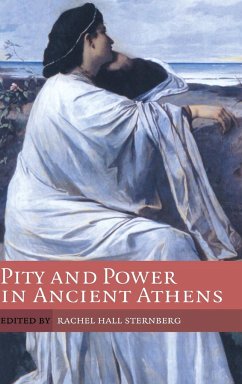
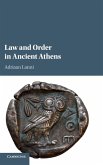
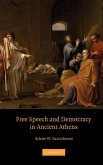

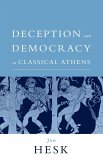
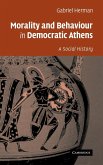
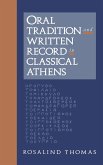
![Ancient Athens [microform]: Its History, Topography, and Remains Ancient Athens [microform]: Its History, Topography, and Remains](https://bilder.buecher.de/produkte/65/65516/65516621m.jpg)